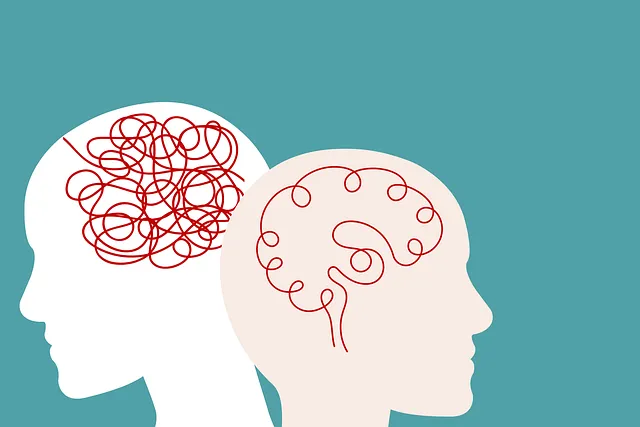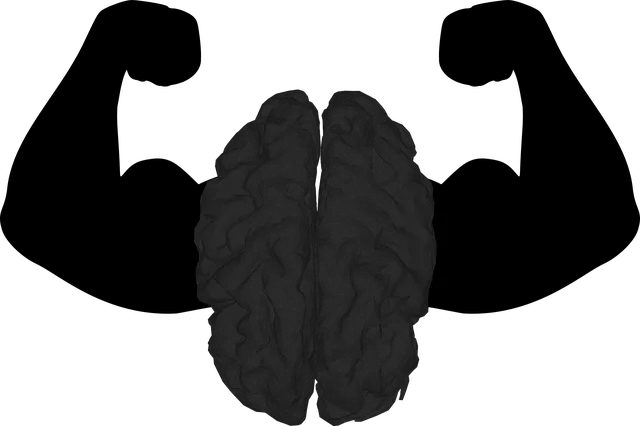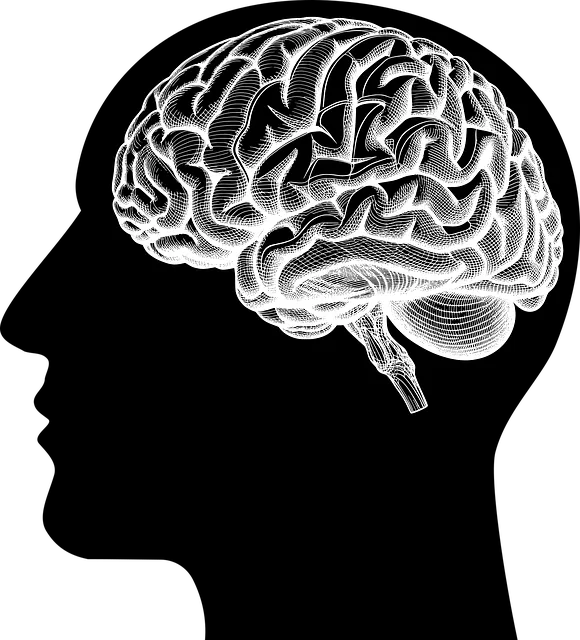Mental illness stigma severely limits access to crucial Kaiser Permanente behavioral health services in Centennial, exacerbating anxiety, depression, and social isolation. This impacts both patients and healthcare providers. Recognizing these effects is a first step towards change, requiring strategies like emotional healing, culturally sensitive care, and provider burnout prevention. Kaiser Permanente's holistic approach in Centennial, integrating self-esteem improvement and positive thinking through various therapeutic methods, empowers patients with coping skills and enhances outcomes. Community education, workshops, online resources, and advocacy for inclusive policies further reduce stigma. Innovative programs, including peer support groups and a mental wellness podcast series, normalize conversations around mental health. Collaboration among organizations like Kaiser Permanente, emotional healing processes, and advocacy efforts by mental health advocates are key to fostering an environment where individuals feel empowered to seek help without stigma.
Mental illness stigma remains a significant barrier to seeking treatment, impacting millions globally. This article delves into comprehensive strategies aimed at reducing this societal burden. We explore the profound effects of stigma on mental health and examine successful initiatives like Kaiser Permanente Behavioral Health Services, renowned for its innovative approach in Centennial. Through community education and advocacy, we uncover effective programs that challenge stereotypes. By synthesizing these efforts, we chart a course for continued progress towards mental health equality.
- Understanding the Impact of Stigma on Mental Health: A Comprehensive Overview
- Kaiser Permanente Behavioral Health Services: A Model for Change
- The Role of Community Education and Awareness in Reducing Stigma
- Success Stories: Programs Effective in Overcoming Mental Illness Stigma
- Strategies for Continued Progress: Collaboration and Advocacy for Mental Health Equality
Understanding the Impact of Stigma on Mental Health: A Comprehensive Overview

Mental illness stigma significantly impacts individuals’ willingness to seek help, often hindering their access to essential Kaiser Permanente behavioral health services reviews Centennial highlight this critical issue. The consequences are far-reaching; those affected may experience heightened anxiety, depression, and social isolation, which can lead to more severe mental health deterioration. Stigma creates a barrier, encouraging people to conceal their conditions, fearing judgment or discrimination.
This pervasive problem not only affects patients but also healthcare providers, leading to increased stress and burnout. Recognizing the profound effects of stigma is a crucial step toward change. Effective strategies, such as those focused on emotional healing processes, cultural sensitivity in mental healthcare practice, and burnout prevention for healthcare providers, are essential tools in the ongoing fight to reduce stigma and foster a more supportive environment for mental wellness.
Kaiser Permanente Behavioral Health Services: A Model for Change

Kaiser Permanente Behavioral Health Services stands as a beacon of hope and progress in the fight against mental illness stigma, with its comprehensive approach offering a model for change. Located in Centennial, this service provider has been at the forefront of revolutionizing how communities perceive and address mental health concerns. Their innovative strategies focus on not just treating symptoms but also fostering self-esteem improvement and positive thinking through various therapeutic interventions.
By integrating coping skills development into their care plans, Kaiser Permanente ensures that individuals leave not only with tools to manage their conditions but also with the resilience to navigate life’s challenges. The Centennial location has been praised for its inclusive environment, where patients feel supported and understood, ultimately leading to better outcomes. These efforts have garnered recognition, making it a go-to resource for those seeking compassionate, effective behavioral health services.
The Role of Community Education and Awareness in Reducing Stigma

In the pursuit of stigma reduction for mental illness, community education and awareness play a pivotal role. By fostering open dialogues and providing accurate information, organizations like Kaiser Permanente’s behavioral health services in Centennial can dispel myths and misconceptions. This approach is crucial as it empowers individuals to better understand mental health conditions, recognize symptoms, and offer support rather than judgment. Educational initiatives can take various forms, from community workshops to online resources, ensuring that a diverse range of people are reached.
Effective communication strategies are at the heart of these efforts. Teaching conflict resolution techniques and promoting active listening can facilitate empathetic interactions between individuals with mental health challenges and their communities. Additionally, advocating for inclusive Mental Health Policy Analysis ensures that local policies reflect the needs of the community, fostering an environment where everyone feels safe to seek help without fear of stigma. Kaiser Permanente’s comprehensive services, combined with community engagement, can significantly contribute to a more supportive and understanding society in Centennial and beyond.
Success Stories: Programs Effective in Overcoming Mental Illness Stigma

In the pursuit of reducing mental illness stigma, several innovative programs have emerged as beacon of hope. Organizations like Kaiser Permanente, known for their comprehensive behavioral health services reviews in Centennial and beyond, have played a pivotal role. Their mental wellness initiatives often involve community outreach, educational workshops, and peer support groups, empowering individuals to share their stories and dispel myths surrounding mental health. These efforts have been met with resounding success, as evidenced by numerous testimonials from those who have overcome stigma and found solace in seeking help.
The impact of these programs extends far beyond individual transformation. They contribute to a broader mental wellness podcast series production, offering valuable insights into managing moods, coping mechanisms, and the importance of early intervention. By sharing success stories and promoting open dialogue, these initiatives foster an environment where mental health discussions are normalized, leading to increased accessibility and better support for individuals navigating their mental wellness journeys.
Strategies for Continued Progress: Collaboration and Advocacy for Mental Health Equality

To achieve significant progress in reducing mental illness stigma, collaboration among various stakeholders is essential. Organizations like Kaiser Permanente play a pivotal role by offering comprehensive behavioral health services reviewed and recognized for their quality care in Centennial and beyond. By integrating emotional healing processes into healthcare plans, they not only treat symptoms but also foster mental wellness. This holistic approach encourages individuals to engage in journaling exercises that can serve as powerful tools for self-reflection and depression prevention.
Advocacy efforts are another crucial strategy. Mental health advocates work tirelessly to ensure policies promote equality and accessibility to care. They educate communities, dispel myths, and advocate for representation in decision-making processes related to mental health. These collaborative initiatives create a supportive environment where individuals feel empowered to seek help without fear of judgment or discrimination, ultimately contributing to a more inclusive society that prioritizes mental wellness for all.
Mental illness stigma reduction is a multifaceted endeavor, requiring collaborative efforts from healthcare providers, community organizations, and advocacy groups. As evidenced by Kaiser Permanente behavioral health services reviews in Centennial, implementing comprehensive programs that educate communities and destigmatize mental health conditions can significantly improve patient outcomes. By continuing to foster awareness and promote understanding, we can create a more inclusive society that supports those facing mental health challenges. Collaboration and advocacy are key to ensuring equal access to quality care, ultimately leading to a healthier and more compassionate community.






